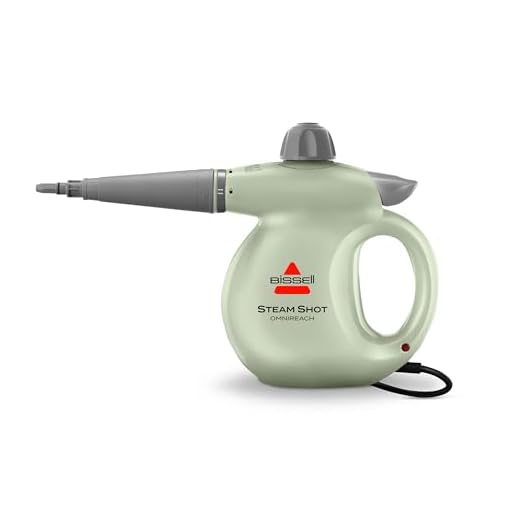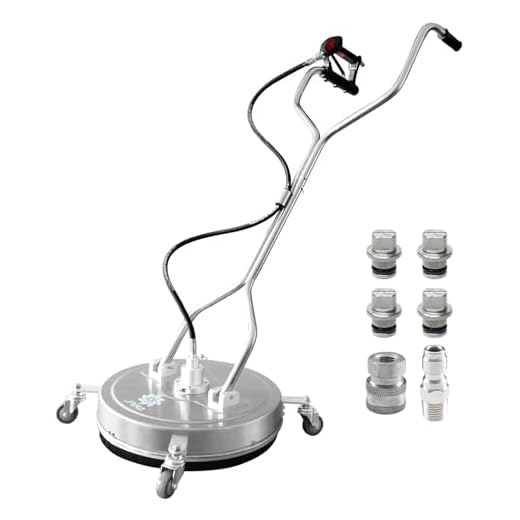Blog
Can Pressure Washing Damage Pavers

Pressure washing is a popular method for cleaning outdoor surfaces, including pavers. It involves using a high-powered jet of water to remove dirt, grime, and stains from the surface. While pressure washing can be effective in restoring the look of your pavers, there is the potential for damage if not done correctly.
One of the main concerns with pressure washing pavers is the force of the water. If the pressure is too high or the nozzle is too close to the surface, it can cause the pavers to become dislodged or chipped. The force of the water can also push the sand between the pavers out, leading to uneven surfaces and potential damage to the joints.
Another factor to consider is the type of pavers you have. Certain materials, such as older or more fragile pavers, may be more susceptible to damage from pressure washing. It’s important to know the recommended cleaning methods for your specific type of pavers to avoid any potential harm.
Additionally, pressure washing can remove the protective sealant or coating that may have been applied to the pavers. This can leave them more vulnerable to future damage from weather, UV rays, and stains. If you do decide to pressure wash your pavers, it’s important to reapply any necessary sealant afterward to protect them.
In conclusion, while pressure washing can be an effective method for cleaning pavers, it is crucial to use the correct techniques and equipment to avoid potential damage. It’s always a good idea to consult with a professional or do thorough research to ensure you are using the appropriate pressure and taking the necessary precautions to keep your pavers looking their best for years to come.
Understanding the Risks
While pressure washing can be an effective method for cleaning pavers, it is important to understand that there are some risks involved.
Firstly, excessive pressure can cause damage to the surface of the pavers. Pavers are typically made from materials such as concrete, brick, or stone, which can be porous and susceptible to chipping or cracking under high pressure. It is essential to use the correct pressure setting and a suitable nozzle to minimize the risk of damage.
Secondly, the use of improper cleaning solutions or detergents can also pose a risk to pavers. Harsh chemicals can potentially stain or discolor the pavers, especially if they are not rinsed off properly. It is essential to select a mild detergent specifically designed for use on pavers and follow the manufacturer’s instructions carefully.
Additionally, pressure washing can dislodge sand joints between the pavers. The force of the water can wash away the sand, leading to an unstable and uneven surface. It is vital to replace any displaced sand and consider applying a sealant to protect the joints from future erosion.
Lastly, pressure washing should be avoided if the pavers are already damaged or in poor condition. Weak or deteriorating pavers may not be able to withstand the force of the water, resulting in further damage. It is recommended to consult with a professional if you are unsure about the condition of your pavers.
In conclusion, while pressure washing can be an effective method for cleaning pavers, it is crucial to understand the potential risks involved. By using the correct pressure setting, selecting suitable cleaning solutions, and being mindful of the pavers’ condition, you can minimize the risk of damage and maintain the longevity of your pavers.
How to Protect Your Pavers
To ensure the longevity and appearance of your pavers, it’s important to take proper measures to protect them. Here are some tips to help you protect your pavers and prevent damage:
1. Regular Cleaning
Regular cleaning is essential to keep your pavers looking their best. Sweep away debris, such as leaves and dirt, on a regular basis. This helps prevent the build-up of dirt and grime, which can cause discoloration and staining.
2. Avoid Harsh Chemicals
When cleaning your pavers, avoid using harsh chemicals or detergents that can damage the surface. Opt for gentle, pH-neutral cleaners specifically designed for pavers. These cleaners effectively remove stains and dirt without causing any harm to the pavers.
3. Seal the Pavers
Sealing your pavers is an effective way to protect them from moisture, oil stains, and other types of damage. A high-quality sealer creates a barrier on the surface of the pavers, preventing any substances from penetrating the material. This helps keep your pavers looking clean and new for longer.
It’s recommended to apply a fresh coat of sealer every couple of years, or as needed depending on the conditions your pavers are exposed to.
4. Use Mats or Rugs
Placing mats or rugs in high-traffic areas, such as entryways and walkways, can help protect the pavers from excessive wear and tear. Mats can prevent abrasive dirt and debris from damaging the surface of the pavers and can help absorb any spills or stains.
5. Be Mindful of Heavy Loads
Avoid placing heavy loads or machinery directly on your pavers, as this can cause cracking or damage to the surface. If you need to move heavy objects, use a dolly or plywood to distribute the weight evenly and prevent any impact on the pavers.
By following these tips, you can protect your pavers and ensure they stay in great condition for years to come.
Alternative Cleaning Methods
In addition to pressure washing, there are a few alternative methods you can consider for cleaning your pavers. These methods may be gentler on the surface and less likely to cause any damage:
1. Scrubbing
Scrubbing your pavers with a stiff brush and a mild detergent can be an effective way to remove dirt and stains. This method requires some elbow grease, but it allows you to control the pressure and avoid any potential damage.
2. Chemical cleaners
Chemical cleaners specifically designed for pavers can also be used as an alternative to pressure washing. These cleaners are typically applied to the pavers and left for a specific period of time before being rinsed off. Be sure to follow the manufacturer’s instructions and use a cleaner that is safe for your specific type of pavers.
3. Steam cleaning
Steam cleaning utilizes hot water and steam to remove dirt, stains, and bacteria from the surface of your pavers. This method is more gentle than pressure washing and can be performed using a handheld steam cleaner or a professional steam cleaning machine.
4. Wet sanding
If your pavers have become uneven or sunken, wet sanding can help restore their appearance and stability. Wet sanding involves filling the joints between the pavers with fine sand and then wetting the surface to allow the sand to settle and harden. This process can help remove dirt and grime while also ensuring that the pavers are properly leveled.
5. Natural cleaning solutions
For a more eco-friendly approach, you can try using natural cleaning solutions such as vinegar or lemon juice mixed with water. These solutions can be sprayed onto the pavers and then scrubbed with a brush to remove stains and dirt. However, it’s always a good idea to test a small inconspicuous area first to ensure that these solutions won’t cause any discoloration.
Remember, regardless of the cleaning method you choose, it’s important to take proper precautions and follow the recommended guidelines to avoid causing any damage to your pavers.
When to Hire a Professional
While pressure washing might seem like a DIY task, there are certain situations when it is best to hire a professional to clean your pavers. Here are a few instances where professional assistance is recommended:
1. Delicate or fragile pavers
If your pavers are made of delicate or fragile materials such as natural stone or old bricks, it is advisable to hire a professional. These types of pavers can easily get damaged or cracked under high-pressure water, especially if they have existing weaknesses. Professionals have the knowledge and experience to use the appropriate pressure and techniques to safely clean these types of pavers without causing any harm.
2. Stubborn stains or algae growth
If your pavers have deep-seated stains or are covered in stubborn algae growth, it is best to call in the experts. Professional pressure washers have access to specialized equipment and cleaning solutions that can effectively remove tough stains and algae without causing any damage. They can also apply protective sealants or coatings after cleaning to prevent future staining and growth.
It is important to note that hiring a professional might come at an additional cost, but it is worth it to ensure the longevity and beauty of your pavers.
In conclusion, while pressure washing can be a DIY task in some instances, there are situations when it is safer and more effective to hire a professional. Delicate or fragile pavers and stubborn stains or algae growth are examples of scenarios where professional expertise is recommended. Investing in professional services ensures that your pavers are cleaned properly and maintained for years to come.
Questions and answers,
Can pressure washing cause damage to pavers?
Yes, pressure washing can potentially cause damage to pavers if not done properly. The high water pressure can erode the surface of the pavers and even dislodge them.
How can I prevent damage to my pavers while pressure washing?
To prevent damage to your pavers while pressure washing, it is important to use the correct nozzle and water pressure setting. It is recommended to start with a lower pressure setting and gradually increase if needed. Additionally, keeping the nozzle at a safe distance from the pavers and using a wide spray pattern can help prevent damage.
What are some signs that my pavers have been damaged by pressure washing?
Some signs that your pavers may have been damaged by pressure washing include cracks, chips, or uneven surfaces. If you notice any of these signs, it is best to stop pressure washing and assess the damage. Repair or replacement may be necessary.
Are there any alternatives to pressure washing for cleaning pavers?
Yes, there are alternatives to pressure washing for cleaning pavers. These include using a broom and mild detergent to scrub the surface, using a garden hose with a spray nozzle, or even hiring a professional paver cleaning service.
Is it safe to pressure wash my pavers if they are already damaged?
If your pavers are already damaged, it is generally not recommended to pressure wash them as it can potentially further worsen the damage. It is best to consult a professional for advice on how to properly repair or replace the damaged pavers.
Can pressure washing damage pavers?
Yes, pressure washing can potentially damage pavers if not done correctly.
How can pressure washing damage pavers?
Pressure washing can damage pavers by dislodging or eroding the sand or other joint fillers between the pavers, causing them to become uneven or loose. It can also chip or crack the pavers themselves if excessive pressure is used.
Recent Posts
-
How To Connect Soap To Honda Pressure Washer
June 28, 2024 -
A To Z Pressure Washing Scam
June 27, 2024 -
How To Pressure Wash Your Home With A Garden Hose
June 27, 2024 -
Where Can I Buy Honda Pressure Washer Parts
June 25, 2024












